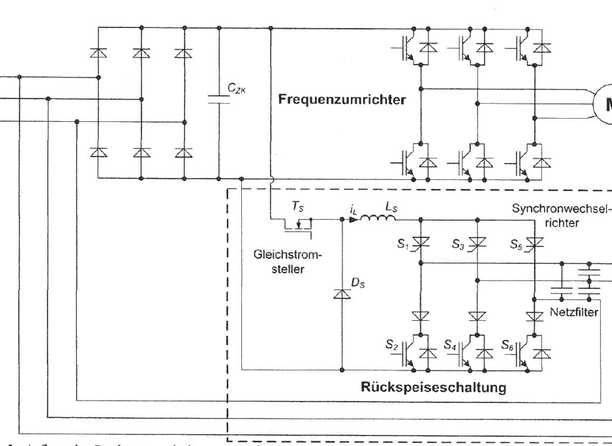Brake resistor - Circuit for recovering braking energy from electric motors
Ref.-No. 4293
Keywords: Electric motor, electric engine, break energy, energy saving, energy harvesting
To decelerate an electric motor, the remaining kinetic and magnetic energy must be removed from the system. This is usually done with brake resistors that convert the energy to heat. This is usually done with brake resistors that convert the energy to heat. In addition to the problem that the resistor must apply a very high-power output for a very short amount of time, this has the disadvantage that the energy released during braking can no longer be used. The novel brake resistor consists of a power electronic circuit, with which the braking energy can be fed back into a three-phase system. The circuit has been optimized for the highest reliability, a small size of the mains filter and with regard to the EMC performance.
Competitive Advantages
- Recovery of the braking energy of an electric motor
- Environmentally friendly
- Cost-saving
- Easy to retrofit
- EMC-compatibility
- Small size
Commercial Opportunities
The brake resistor is designed in such a way that it allows it to not only be integrated into new systems, but also to replace conventional brake resistors. Such a retrofit kit makes it possible to retrofit even electric motors that have been in operation for years in environmentally friendly way and without much effort. The recovery of braking energy makes it possible to save energy, reduce costs and relieve the burden on the environment.
Current Status
International patent applications are pending. The method was verified experimentally. On behalf of the Ostwestfalen-Lippe University of Applied Sciences, we offer interested companies the opportunity to license and develop the technology.
—
An invention of TH OWL.



